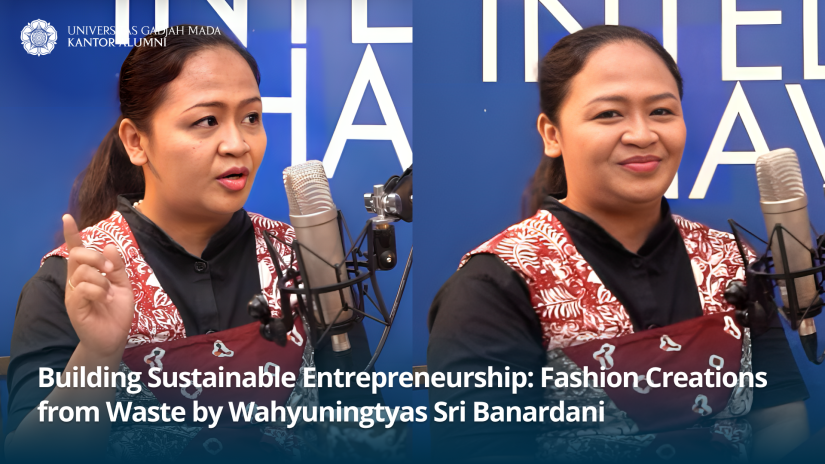
Not all people have the courage to take risks and start a business from scratch. However, for Wahyuningtyas Sri Banardani, the owner of Omah Kreashe Banardani, such challenges escalate her spirit and creativity. As an inspiring entrepreneur in the fashion industry, particularly in batik made from recycled materials, Tyas has demonstrated that with hard work, innovation, and strong determination, one can build a successful business.
An alumnus of the Faculty of Agriculture at Gadjah Mada University, Tyas has loved fashion since childhood. She often played with paper dolls and made clothes for them. This passion continues into adulthood, although she initially pursued a different major in college due to her parents’ guidance.
After graduating, Tyas worked in various fields, including as an elementary school teacher. However, she decided to return to Jogja and began learning sewing at BLKPP DIY in 2016. Starting from scratch, Tyas wasn’t immediately confident in taking incoming orders. However, the support and approval of her perfectionist mother gave her a significant push to continue learning and improving her skills.
2019 was a turning point for Tyas. She began receiving orders for masks, fabric made from her own shibori ecoprint production during the pandemic. From there on, she honed her skills and even participated in various fashion designer training programs, eventually being selected as one of the designers to showcase her work at the Jogja Fashion Parade.
Tyas’s concern for the environment led her to use natural and waste materials to create her works. With the tagline “Embrace the Earth, Love the Country,” she encourages people to be more mindful in choosing clothes and reducing textile waste. The fabric she uses often comes from natural fibers, and she uses a zero-waste pattern to avoid leftover fabric.
Omah Kreashe Banardani, a platform founded by Tyas, provides job opportunities for anyone to produce fashion items from home. The products are made through a simple production process, and the handmade nature of the items makes users feel special. Starting from shibori ecoprint production, Omah Kreashe has now become a platform for preserving traditional art that has expanded beyond the island.
“I make Omah Kreashe a holistic art and education platform. Holistic art because our products relate to nature and society, and education because we educate about using natural materials and the zero-waste process,” said Tyas.
Despite being relatively new to the fashion industry, Tyas’s works have been recognized and found a place in various prestigious fashion events. Her success is due to her hard work, dedication, passion for continuous learning and innovation, and most importantly, her parents’ blessings.
Tyas’s extraordinary story can inspire people to pursue their respective fields. Not only creating jobs and providing social support for all groups, but Tyas also contributes to achieving the SDGs pillar: Environmental Development with her eco-friendly products.
[Alumni Office: Syahrul, Photo: UGM Channel]
